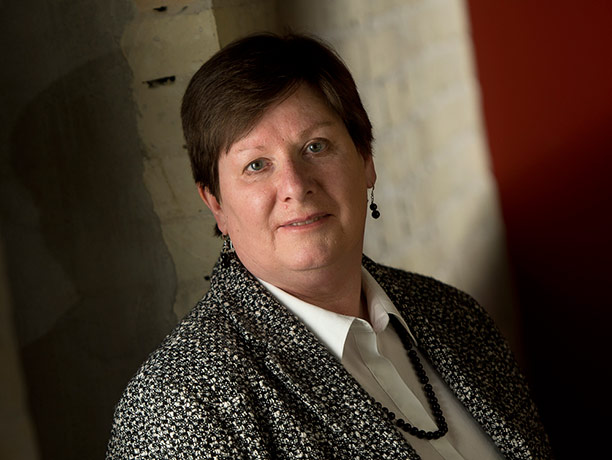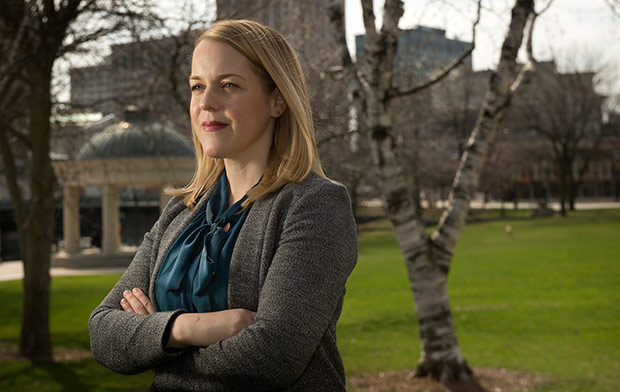
In late March, as people in China emerged from coronavirus quarantines, lawyers watched divorce rates skyrocket in many Chinese cities. Statistics about the increase quickly spread online.
Bloomberg News called the trend a “warning” to the world and its millions of quarantined couples.
Wisconsin couples were then about two weeks into the state’s mandatory stay-at-home order. Now, two months and one overturned statewide order later, family lawyers are assessing the effects of the COVID-19 pandemic on their practices. And to the surprise of some, there hasn’t been inundation of divorce filings.
Gregg Herman, managing partner at Loeb & Herman in Milwaukee, said his firm’s court filings are down enormously — going from 15 to 20 a day in Milwaukee courts to about five. He said he and other divorce lawyers generally have two hypotheses about why this is happening.
Some believe the recent increase in domestic-violence incidents has led to a decrease in divorce filings. With the coronavirus causing financial strain and confining many people to their homes, stress has become all too common in many homes, and Milwaukee and other cities have been reporting higher rates of domestic violence. Someone who is living under the threat of physical harm might be too afraid to file.
Herman, though, subscribes to a second hypothesis.
“People think, ‘It’s not a great marriage, but I don’t know if it’s a good time with my 401(k) and my savings down,’” Herman said. “I don’t think there’s going to be a huge spurt of new divorces filed with the quarantine lifted. I think the economic condition is going to suppress that, although nobody knows for sure.”
Susan Hansen, a collaborative lawyer and mediator at Hansen & Hildebrand in Milwaukee, said it’s likely more people will want a divorce during or after the pandemic. But it’s hard to predict if they’ll actually file because of the pandemic’s far-reaching ramifications.
“Relationships either grow stronger or they break in this type of pressure and adversity,” Hansen said. “We’re going to be dealing with people who are dealing with a very different kind of struggle than ‘Do I stay, or do I leave the marriage?’”
New demands
Although the outlook on divorce rates is uncertain at this point, both Herman and Hansen have experienced new demands in other parts of their practice because of the pandemic. Herman is now involved in, or is being consulted on, six or seven cases regarding lost income and support payments.
“It’s huge in terms of this field,” Herman said. “So many people have lost their jobs or had their income substantially cut back.”
The income change could lead to several modifications to support — first when people are laid off or lose part of their incomes and again when they are rehired or allowed to reopen their businesses.
At the same time, Herman said, many support questions are being pushed off because the courts aren’t handling their normal workloads. Until they return to normal operations, he said, it will most likely remain unclear exactly what people should be doing.
“In a lot of these cases, if there’s no income, then there’s no support being paid,” Herman said. “If the income isn’t zero, then it’s been diminished. What I’ve told my clients is you’ve got to pay something. We calculate a pro rata amount.”
Hansen and her firm have seen an increase in calls about mediation since the pandemic’s beginnings. Most are coming from couples wanting to represent themselves, a trend that has contributed to the rise in requests for divorce documents from Wisconsin Legal Blank this past month.
The Milwaukee business, which provides legal paperwork, has seen an estimated 65% increase in divorce-kit sales since mid-April. Rick Russell, an owner of Wisconsin Legal Blank, said his company went from selling just a few forms a week to about 15. Most of the orders are from local residents.
Hansen said about 70% of all requesters will choose to represent themselves in their divorces proceedings, and about 98% will end up with a signed agreement. Many of the couples she has started working with since the pandemic’s beginnings are approaching divorce jointly.
“The stay-at-home orders have put people together for much longer blocks of time, and for some, it’s really compelled some deeper conversations,” Hansen said.
There aren’t any new legal barriers to divorce that have arisen since the start of the pandemic. Still, Hansen said, recent changes in court operations have made the process even more difficult for those who choose to represent themselves. In these circumstances, she said, family lawyers should strive to be a source of legal information, instruction and guidance for couples.
“I think we as lawyers need to look through a different lens at how we can help those families navigate separation and divorce, versus a traditional lawyer lens of zealous advocacy and using the courts as a place to engage in a legal battle involving a family,” Hansen said. “I’m hoping this (pandemic) helps us rescind some of that.”
Increased efficiency, technology
To ensure she can continue providing her services during these difficult times, Hansen has moved her practice almost entirely online. Even before the pandemic, the firm had started using ShareFile, an online file-transfer system that has become only more necessary in recent months. And her partner, Paul Stenzel, and the rest of the firm have begun using Zoom.
“Basically our practice went virtual and online in a matter of a couple days,” Hansen said. “It certainly forced me out of some of my comfort zones of how I practice with so much of my work being face-to-face.”
Hansen and Herman said new technology can eliminate inefficiencies in family law. Through the use of Zoom and similar services, pretrial hearings that once took hours out of a party’s day can now happen in 10 minutes.
“I’m hoping some of these changes we’ve had to adapt will remain post-pandemic,” Hansen said. “I think it would help the parties and also, frankly, help lawyers and courts.”
Herman said Milwaukee and Waukesha counties have adopted interim plans to essentially allow divorce by affidavit, a procedure that saves quite a bit of time. Although some lawyers are averse to the plan, Herman believes the chance that complications will arise in the future are close to one in 1,000.
“You’re taking 999 cases and telling them they have to be inconvenienced financially for a pro forma hearing that could be handled solely by affidavit and mailings,” Herman said. “Right now, it’s an emergency order by the courts, and I’m hoping the courts will continue to allow that.”
Adapting practices
Although the definition of “normal” continues to change, family lawyers will have to continue to adapt.
Herman said more people are turning to family attorneys as they lose income or raise concerns about children’s safety in custody and placement agreements.
Hansen expects some of her clients will want to return to in-person meetings as soon as possible, despite the continuing health risks.
“For as much as we all want the resumption of what was normal, I worry at times that the desire for normalcy and the dismissiveness around the risks of the pandemic will cause some people not to take appropriate steps,” Hansen said.
She said people will have to be willing to compromise when safety is in question, whether that means wearing masks at in-person meetings or simply continuing to use Zoom.
Although much remains uncertain about the pandemic’s long-term effects, Hansen said she family lawyers will now consider offering more mediation, limited-scope consulting and other unbundled services — options that often help hold down costs for clients.
“Divorce has gotten far too expensive for most people,” Hansen said. “We can use some of the other tools so we can have a higher volume of clients, but a more efficient and effective delivery of services.”







